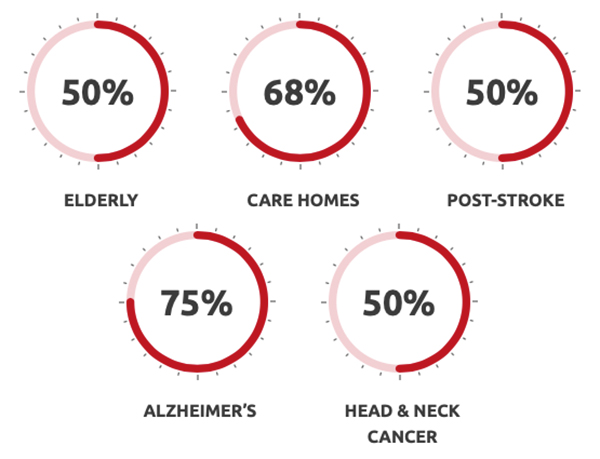Facilitating
treatment adherence
Oral solid dose formats do not suit all patients
Many elderly patients have issues about taking tablets
Proportion of patients with difficulty swallowing

Adapted from 1,2,3,4,5
- Difficulty swallowing is believed to affect up to 50% of the elderly1 and one study suggested 68% of care home residents were affected2
- Dysphagia affects over 50% of survivors immediately post-stroke and up to 13% remain dysphagic after 6 months3
- In one study, dysphagia was identified in up to 75% of people with Alzheimer’s disease4
- Dysphagia has been shown to be present in over 50% of patients treated for head and neck cancer5
Paediatric patients may also experience difficulties
- There is no set age at which children can safely swallow tablets6
- For younger patients, liquids are the dosage form of choice6 and palatability is key7
Dose titration may be less flexible with solid oral dose medication
- Atorvastatin dosage is individualised and up-titrated from 10mg OD until desired lipid levels are achieved8
- Muscular aches and pains are a common side effect and dosage may need to be adjusted to control them9,10

Atorvastatin 4mg/ml Oral Suspension
The first licensed liquid atorvastatin
